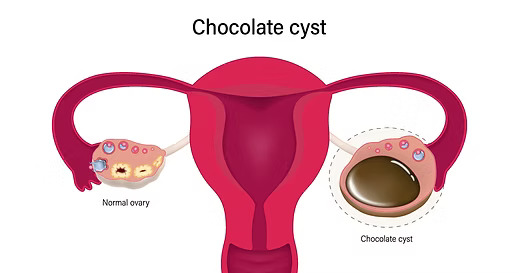
Endometriosis-related Infertility
Endometriosis and Infertility: Understanding the Connection and Finding a Path Forward
Endometriosis is more than just painful periods; it is a
complex condition that can significantly impact a woman’s fertility. If you
have been diagnosed with endometriosis and are struggling to conceive, you are
not alone. Understanding how endometriosis affects your reproductive system is
the first step toward creating an effective treatment plan to help you achieve
your dream of parenthood.
What is Endometriosis?
Endometriosis occurs when tissue similar to the lining of
the uterus (the endometrium) grows outside the uterus. These growths, known as
implants or lesions, can be found on the ovaries, fallopian tubes, the outer
surface of the uterus, and other organs within the pelvis. Like the uterine
lining, this tissue responds to hormonal changes, breaking down and bleeding
with each menstrual cycle. However, this blood and tissue have no way to exit
the body, leading to inflammation, the formation of scar tissue (adhesions),
and pain.
How Does Endometriosis Cause Infertility?
Endometriosis can affect fertility in several ways, creating
both physical and physiological barriers to conception:
- Anatomical Distortion: Scar tissue and adhesions can bind reproductive
organs together, blocking the fallopian tubes or distorting the anatomy of
the pelvis. This can prevent the egg from being captured by the tube after
ovulation or hinder the journey of sperm to meet the egg. - Inflammation: The chronic inflammation caused by endometriosis creates a hostile environment in the pelvis. This inflammation can damage sperm or eggs, interfere with
the process of fertilization, and impair the development of the embryo. - Ovarian Function: When endometriosis cysts, known as endometriomas,
form on the ovaries, they can damage healthy ovarian tissue. This can
reduce the number and quality of eggs (ovarian reserve), making it more
difficult to conceive. - Impaired Implantation: The inflammatory environment may also affect the
lining of the uterus (endometrium), making it less receptive to a
fertilized embryo, thereby hindering successful implantation.
Symptoms: Beyond Infertility
While infertility is a primary symptom for many, other signs
of endometriosis can include:
- Severely painful periods (dysmenorrhea)
- Chronic pelvic pain
- Pain during or after intercourse (dyspareunia)
- Painful bowel movements or urination, especially during your period
- Heavy menstrual bleeding
- Fatigue and digestive issues
It is important to note that the severity of pain does not
always correlate with the stage of endometriosis. Even mild endometriosis can
cause significant fertility challenges.
Treatment Options for Endometriosis-Related Infertility
A diagnosis of endometriosis does not mean you cannot have a
child. There are several effective treatment paths, which will depend on your
age, the duration of infertility, the stage of endometriosis, and your personal
goals.
1. Surgery: Laparoscopic Excision
Laparoscopic surgery is the gold standard for both diagnosing and treating
endometriosis. A surgeon can precisely remove or destroy endometrial implants
and scar tissue. This can help restore normal pelvic anatomy, reduce
inflammation, and improve natural fertility potential, especially in mild to
moderate cases.
2. Intrauterine Insemination (IUI) with Ovulation Induction
For women with minimal or mild endometriosis and open fallopian tubes, IUI can
be an effective first-line treatment. Fertility medications are used to
stimulate the ovaries, and washed, concentrated sperm is placed directly into
the uterus, bypassing potential cervical issues and increasing the number of
eggs available for fertilization.
3. In Vitro Fertilization (IVF)
IVF is often the most successful treatment for moderate to severe
endometriosis, or when other treatments have not worked. IVF bypasses many of
the obstacles created by endometriosis:
- It retrieves eggs directly from the ovaries before they are affected by the
inflammatory environment. - Fertilization occurs in the controlled, optimal conditions of the embryology lab.
- Embryos are transferred directly to the uterus.
In some cases, a course of medication (like GnRH agonists)
may be recommended before an IVF cycle to suppress endometriosis and reduce
inflammation, potentially improving implantation rates.
A Personalized Approach to Your Care
There is no one-size-fits-all solution for
endometriosis-related infertility. Our team of specialists has deep expertise
in managing this complex condition. We will work with you to develop a
personalized plan that addresses your specific situation, from diagnostic
laparoscopy to advanced reproductive technologies like IVF.
Take the Next Step
Living with endometriosis is challenging, but it does not
have to define your future family. Seeking help from a fertility specialist who
understands this condition is crucial.
Contact us today to schedule a consultation. We are here
to listen to your story, provide a clear diagnosis, and guide you on the path
to parenthood with compassion and expertise.
